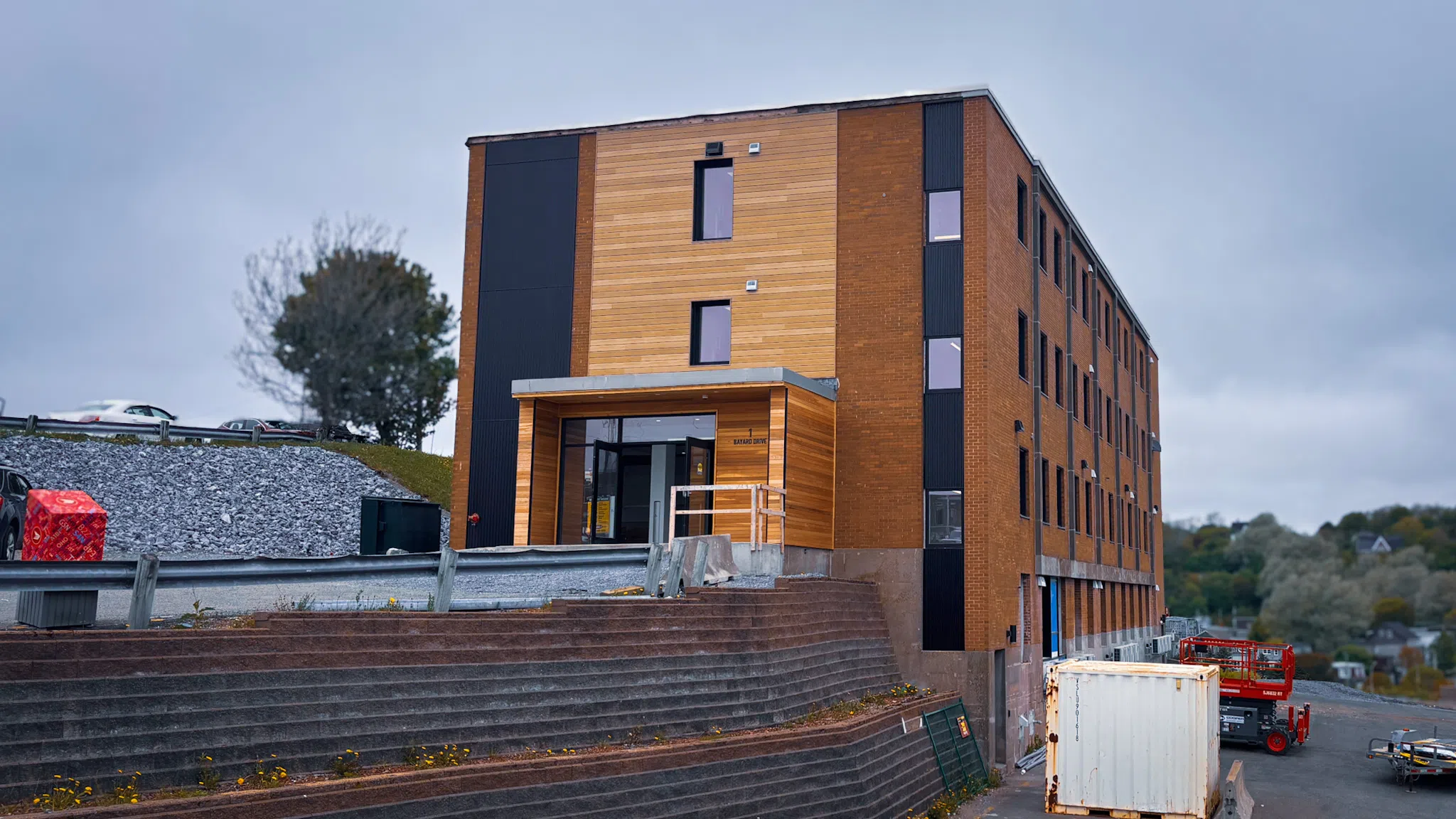The Hospital Hill project at 1 Bayard Drive is nearing completion of its first phase, with more than half of its units already rented.
CEO of Hospital Hill Development, Michael Wowchuck, explained that transforming an existing building into affordable housing is only the beginning of a broader plan to revitalize the Hospital Hill area and Waterloo Village.
Phase one began when the building, formerly occupied by the Roman Catholic Diocese, was purchased in January 2024.
Wowchuck said the building underwent a full interior demolition and renovation that began in May 2024.
Now estimated to be 95 per cent complete, the facility offers 25 units ranging between 500 and 700 square feet.
Approximately 16 units are currently occupied, including five subsidized by NB Housing at about $1,060 per month.
There are also two barrier‑free units designed specifically to eliminate physical barriers and improve accessibility for individuals with disabilities.
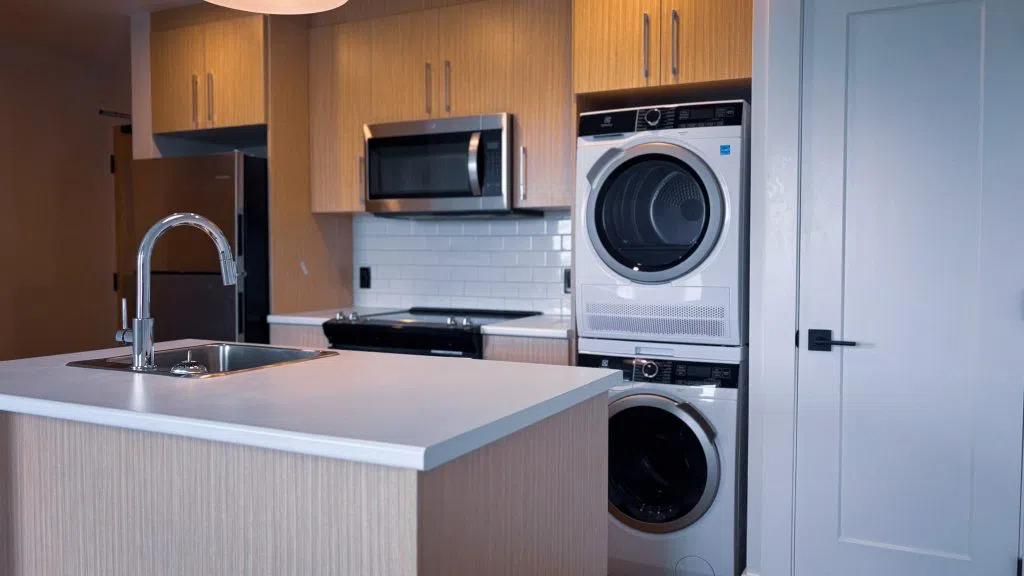
Overall, the “all‑in” rent averages around $1,600 per month, covering appliances, hot water, heating, lighting, parking, and storage.
Wowchuck noted that the renovation cost of the first phase was roughly $3.5 million.
Originally conceived as a seniors’ apartment building, the project quickly evolved in response to local demand.
“You have to react to the market and pivot,” Wowchuck said.
The current tenant mix now includes both seniors and young professionals in their 20s and 30s, reflecting the need for affordable housing that spans a range of income levels.
Focusing on what he calls the “missing middle,” Wowchuck plans in the next parts of the development to keep rents within the “affordable” bracket, ideally between $1,200 and $1,800, rather than chasing high-end rates above $2,000.
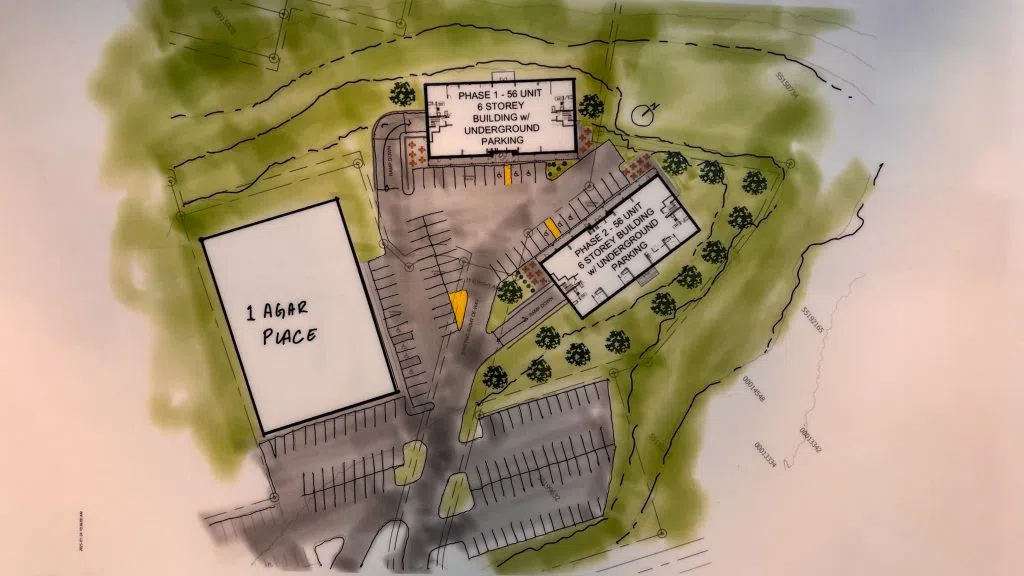
A four‑phase redevelopment strategy
Wowchuck outlined a comprehensive four‑phase strategy for the Hospital Hill area after the completion of phase one.
Phase two will improve the public realm by installing a retaining wall along the hill and adding enhancements such as green space, expanded parking, and a pedestrian walkway to better connect the neighbourhood.
Phase three targets a major residential expansion on the site of the old General Hospital.
The plan calls for constructing a six‑story building containing 56 units.
Wowchuck said nearly 10 feet of rubble from the old hospital remains underground in the area they will be developing on.
Phase four envisions constructing an additional residential tower adjacent to the Phase 3 building with at least 56 units, further increasing the housing supply.
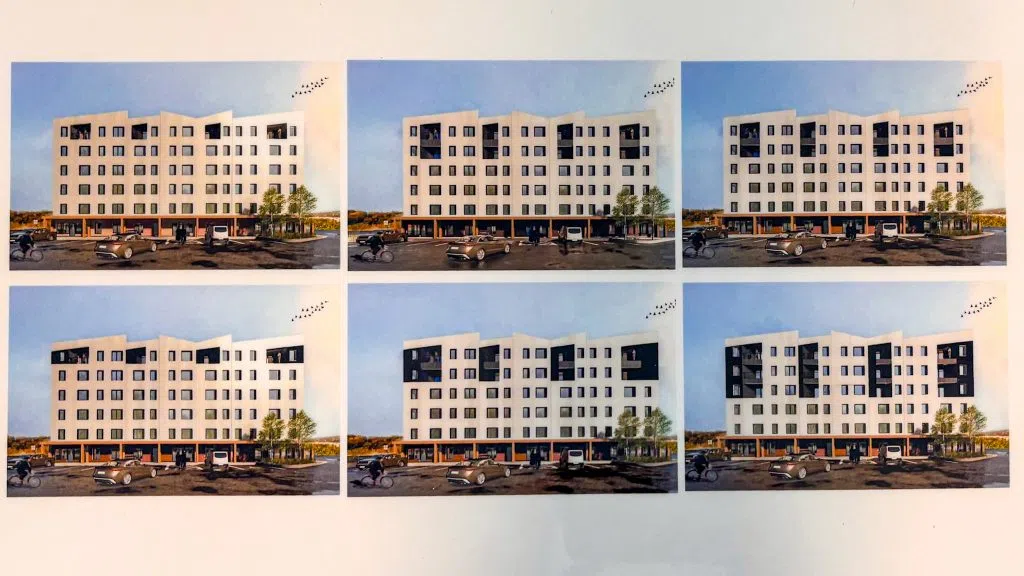
Financing, approvals and the role of CMHC
Wowchuck stressed that “making the numbers work is the key.”
He explained that the entire redevelopment is projected at about $18 million and said securing a minimum of $4 million in equity is crucial to begin the next phase.
The financing plan will blend private investment with government-backed funding. Support from the Canada Mortgage and Housing Corporation (CMHC) also looks to be a key part of this process.
Wowchuck explained that he estimates the next phase within the project will take a minimum of 20 months to complete, including six months dedicated solely to securing financing and approvals through CMHC.
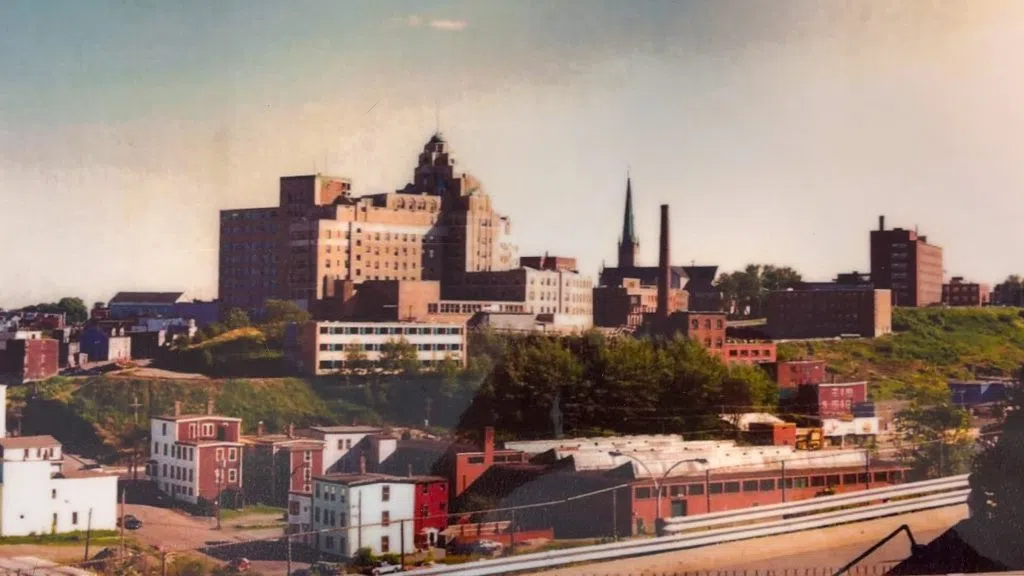
Partnerships and a broader social vision
A new element of Wowchuck’s strategy is looking at forming partnerships with not‑for‑profit organizations to extend support beyond simply offering housing.
His idea aims to serve as a “second or third stage” of support for individuals who may currently be in more unstable or transitional housing.
Wowchuck is looking into possibly establishing a filtering process, for example, with organizations such as Fresh Start or initiatives like 12 Neighbourhoods, to determine who is ready to move into long‑term, stable housing.
He has spoken extensively with Fresh Start, an organization known for assisting individuals who are homeless or facing eviction, because their expertise complements his focus on building quality housing.
“I’m not just adding more units — I’m creating a support system that helps people move from unstable living conditions into long‑term homes,” he explained.
“I want to bring life back to this neighbourhood and restore pride in our city.”
As Saint John contends with rising living costs and a tightening housing market, the Hospital Hill redevelopment aims to offer a multi‑phase approach to addressing affordable housing needs while supporting a broader community renewal.


